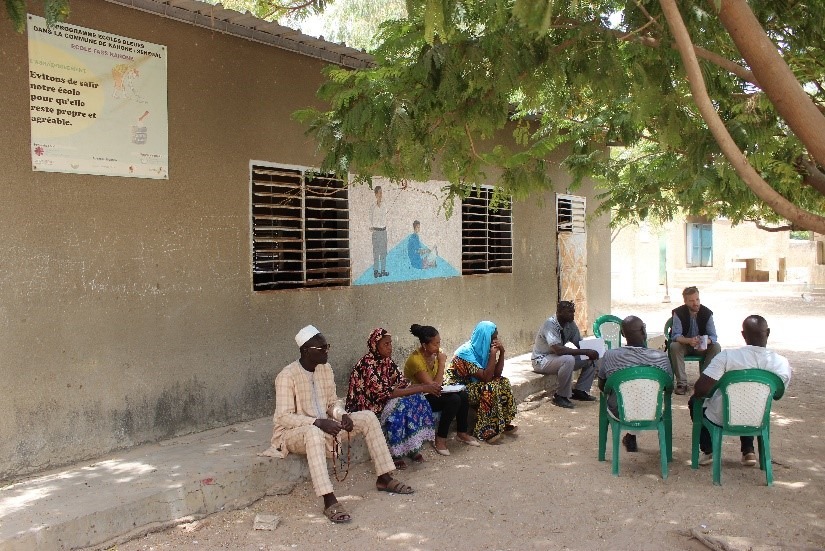A Green Thought in a Blue School
What’s value of a tree? Tree planting is a feature of our Blue Schools, whose five components comprise rainwater harvesting, sanitation, hygiene training, tree planting and school gardens. On re-visiting two IRHA Blue Schools in Kaolack, Senegal earlier this month, Marc Sylvestre (IRHA’s Executive Director) was delighted to observe the positive impact on-campus tree planting has within the local community. The Kaolack Blue Schools were established in 2011, in partnership with Caritas Kaolack. On returning eight years after the schools’ inauguration, we discovered how deeply invested our project partner remains in this venture. They act as caretakers for the facilities we jointly established. The trees our NGOs planted together are grown tall, casting shade in the schools’ playgrounds. With temperatures above 40°C during Ramadan this June, these publically accessible areas act as oases, in which the local community gathers to exchange news when the schools are closed. Out of teaching hours, ex-students also return to study for exams, enjoying the cool and calm of the schools’ courtyards and classrooms. Revising in the grounds of these Blue Schools allows the mind to 'withdraw into its happiness’, an experience celebrated in Andrew Marvel’s poem 'The Garden’. Attending the primary schools of Fass Kahone and Kahone One, children appreciate the clean drinking water, shade, and well- maintained toilet and washroom facilities, which are conducive to learning. Upon entering secondary education, these children export the Blue School model, requesting that it be reproduced in their new learning environments.
The care of Caritas Kaolack ensures these schools remain good places in which to learn. The cultivation of school environments, removing rubbish, keeping sanitary facilities clean and repairing any damage, in turn cultivates local children and their communities. Harvested rainwater is available at the turn of a tap, and while teachers might uses this water to clean a blackboard, the whole community has access to the school’s 40-50 m3 supply. Mr Diouf, president of PEACE (the Parent, Enfant, Authorité, Communité, Enseignant committee) told us how the local community use this water resource. In the dry season, they collect water to clean their toilets or do household cleaning. Having rainwater on tap, and in proximity, enables people to save half-an-hour per day, which they would otherwise spend in walking to collect water from other sources. Since children often perform this task, freeing their time for study is invaluable in ensuring they receive a good education.
Local people recognize that our Blue Schools' integrated, sustainable development approach improves school children’s quality of life. Like all good ideas, this one has spread. Elements from our project have been replicated within the wider Kaolack community. For instance, the President of the Parents’ Committee and deputy of the Caritas Committee, Mr Moussa Sene, was inspired by the positive impact of tree planting within the Kaolack Blue Schools. Now, lemon and orange trees grow in his garden too, providing shade and citrus fruits that are much appreciated by his family.
If you have a much-valued tree that has been irrigated with rainwater, please get in touch with us to share your story!
